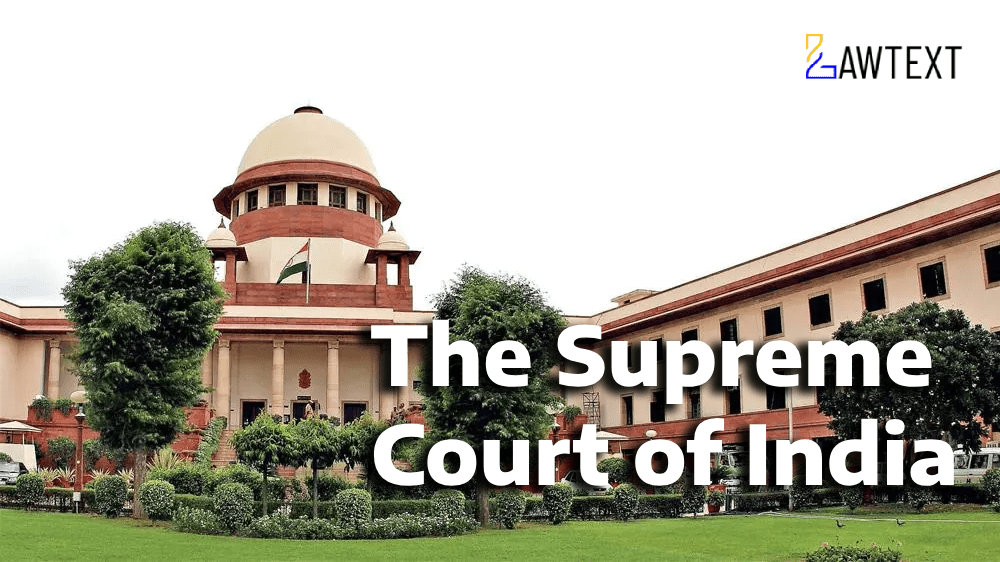

Constitution of India, 1950 – Article 136 (Special Leave to Appeal)
Code of Civil Procedure, 1908 – Order 20 Rule 18 (Partition Suit)
Hindu Succession Act, 1956 – Section 14(1) (Absolute Ownership of Women), Section 6 (Devolution of Interest in Coparcenary Property)
Hindu Adoptions and Maintenance Act, 1956 – Section 12 (Effects of Adoption), Section 16 (Presumption of Valid Adoption)
Transfer of Property Act, 1882 – Section 122 (Gift – Definition & Conditions)
Adoption – Hindu Law – Doctrine of Relation Back – Absolute Ownership – Legal Heir – Partition – Sale Deed – Gift Deed – Validity of Transactions – Possession – Property Law
Nature of the Litigation:
The appellant, Sri Mahesh, filed a partition suit (OS No.122/2009), claiming rights as the adopted son of Parvatibai (Defendant No.1).
He challenged the sale deed (13.12.2007) and gift deed (27.08.2008) executed by Defendant No.1, asserting that these transactions were invalid without his consent.
Who is Asking the Court and for What Remedy?
The appellant sought partition and separate possession of the suit properties and cancellation of both the sale and gift deeds.
Reason for Filing the Case:
The appellant claimed that, as the adopted son, he was entitled to a half share in the suit properties and that Defendant No.1 lacked authority to execute the sale and gift deeds.
What Has Already Been Decided Until Now?
Trial Court (31.03.2018):
Sale deed (13.12.2007) upheld as valid.
Gift deed (27.08.2008) declared null and void.
Appellant granted ownership of B & C schedule properties.
High Court (14.02.2024):
Reversed the Trial Court’s decision on the gift deed, holding it valid.
Dismissed the appellant’s entire suit.
Whether the plaintiff, as an adopted son, was entitled to a half share in the suit properties.
Whether the sale deed (13.12.2007) executed by Defendant No.1 was valid.
Whether the gift deed (27.08.2008) executed by Defendant No.1 was legally enforceable.
By the Appellant:
Adoption on 16.07.1994 made him the legal heir of Bhavakanna, entitling him to a half share.
Defendant No.1 was not the absolute owner; therefore, the sale and gift deeds were invalid.
The Doctrine of Relation Back applied, and his rights related back to 04.03.1982 (date of Bhavakanna’s death).
By the Respondents:
Defendant No.1 acquired absolute ownership through the compromise decree (1982) and Section 14(1) of the Hindu Succession Act, 1956.
The sale and gift deeds were valid and binding.
Section 12(c) of the Hindu Adoptions and Maintenance Act, 1956 barred the appellant from divesting vested property.
Sale Deed (13.12.2007) – Upheld as Valid
Defendant No.1 was the absolute owner of ‘A’ schedule property.
The Doctrine of Relation Back does not apply as ownership was already vested before adoption.
Trial Court & High Court’s concurrent findings upheld – No claim of the appellant on 'A' schedule property.
Gift Deed (27.08.2008) – Declared Null and Void
Misrepresentation: Gift deed falsely stated that the donees were natural grandchildren of Defendant No.1.
Failure of Possession Transfer: Defendant No.1 retained possession until her death, violating Section 122 of the Transfer of Property Act.
Trial Court’s finding restored; High Court’s reversal quashed.
Legal Position of Adoption and Succession
Adoption does not divest property already vested (Section 12(c) of Hindu Adoptions and Maintenance Act, 1956).
Absolute ownership under Section 14(1) of the Hindu Succession Act, 1956 allowed Defendant No.1 to alienate property without restrictions.
Appeal against RFA No.100247/2018 (sale deed challenge) dismissed.
Appeal against RFA No.100168/2018 (gift deed challenge) allowed.
Trial Court’s decree restored – Appellant gets B & C schedule properties.
High Court’s erroneous findings reversed.
No order as to costs.
Sale of 'A' Schedule Property (13.12.2007) – VALID
Gift of 'B' & 'C' Schedule Properties (27.08.2008) – INVALID
Appellant gets ownership of B & C properties.
High Court’s reversal set aside; Trial Court’s ruling restored.
Citation: 2025 LawText (SC) (1) 22
Case Number: Civil Appeal Nos. of 2025 (@ SLP (C) Nos. 10558-59 of 2024)
Date of Decision: 2025-01-02
Case Title: Sri Mahesh Versus Sangram & Ors.
Before Judge: (C.T. Ravikumar J., Prashant Kumar Mishra J.)
Appellant: Sri Mahesh
Respondent: Sangram & Ors.